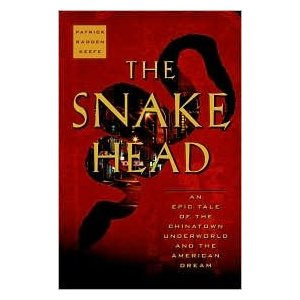 WoWasis has already reported on the AAMP (Asian Apartment Massage Parlor) scene in the western U.S. In that environment, based on our interviews, it would appear that most of the women involved in the trade view the United States as a quick way to make great money, and a way-stop on their way back home. Whether returning to China to buy a home, start a business, or be close to their families, permanent residence in the U.S. is not a goal.
WoWasis has already reported on the AAMP (Asian Apartment Massage Parlor) scene in the western U.S. In that environment, based on our interviews, it would appear that most of the women involved in the trade view the United States as a quick way to make great money, and a way-stop on their way back home. Whether returning to China to buy a home, start a business, or be close to their families, permanent residence in the U.S. is not a goal.
For thousands of Chinese nationals that have been illegally smuggled into the U.S through New York City’s Chinatown, that isn’t the case. For them, the U.S. is indeed the “Gold Mountain.” And investigative author Patrick Radden Keefe details the whole operation beautifully in The Snakehead: An Epic Tale of the Chinatown Underworld and the American Dream (2009, ISBN 978-0-385-52130-7). Keefe begins by giving a history of the Chinese in the United States, but the story actually revolves around Sister Ping (Cheng Chui Ping), a master smuggler who ultimately and somewhat surprisingly comes across as a sympathetic figure, and who is currently incarcerated in a decades-long prison sentence.
There’s intrigue, horrific deaths, and great investigative reporting here. The Chinese detailed in the story are Fujianese, eager to escape an unfavorable economic situation at home. In 1993, the era in which much of this story takes place, they agreed to pay roughly $18,000 USD for the transit, $2,000 upfront, the rest due 72 hours upon delivery to the U.S. The latter amount they borrowed from friends and relatives in the U.S., and most paid the entire sum back in 2 years (the figure in 2009 had reportedly increased to $70,000 USD).
Many other players appear in the book: Chinese-American gangs, INS officials, and anti-abortion groups (who favored bringing Fujianese to the U.S. when they understood that Chinese laws limited size of families would cause females to undergo unwanted abortions in their own country).
There’s also a wonderful passage discussing the corruption of Thai airport official in Bangkok:
During the years immediately following Tiananmen, snakeheads had relied on a great deal of official corruption at the international airport in Bangkok. Thailand is extravagantly corrupt even by the standards of Southeast Asia, and the snakeheads had no trouble finding officials at the airport who would turn a blind eye to travel documents that were obviously phony. The situation was somewhat comical: you could walk into the departures hall at Bangkok Airport and see eight ticket windows without any line at all and a long line of Chinese travelers waiting patiently at the ninth, where the official was on the take. By 1992, U.S. authorities were encountering so many fraudulent documents on incoming flights ‘from Thailand that they dispatched additional personnel to Bangkok to monitor their counterparts. American officials would perform “operation disrupts,” monitoring the Thai ticket-takers to make sure no fake passports were getting through and obliging the attendants to shuffle stations every twenty minutes so that snakeheads could not simply count on sending their customers to a designated window. American document experts worked alongside the Thais, examining any passport or visa that didn’t look legitimate.
Until that point Bangkok had been a kind of gateway to America; if you could make it from China to Bangkok, you could make it to the United States. People undertook long journeys to reach the city, and would wait in fetid safe houses in Bangkok’s Chinatown until they were able to board an airplane. But when authorities cracked down at the airport, a bottleneck developed. Many snakeheads had gone to great lengths to get people to Bangkok. The business was a pipeline, and there were always customers at different stages of the route. With the .bottleneck suddenly clogged, the safe houses in Bangkok started filling up with people, sometimes as many as thirty, crammed into small spaces, waiting for their flight out. The solution was boats.
For anyone desiring to better understand international human smuggling operations, U.S. INS practices, the Chinese dynamic in the U.S., Chinese gangs, and just plain old political intrigue, this well-written and researched book is for you. We couldn’t put it down. Buy this book now at the WoWasis eStore.
Leave a Reply